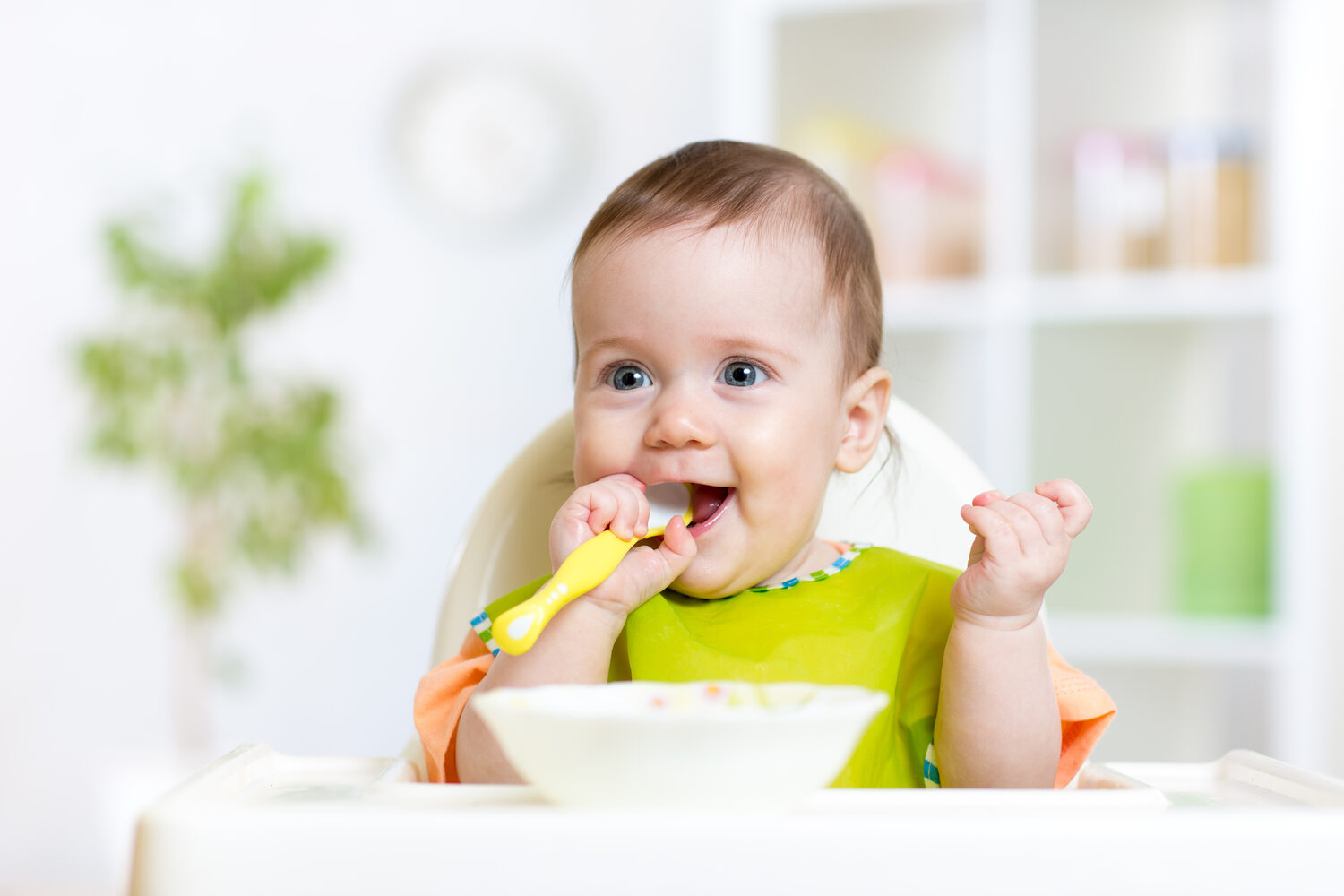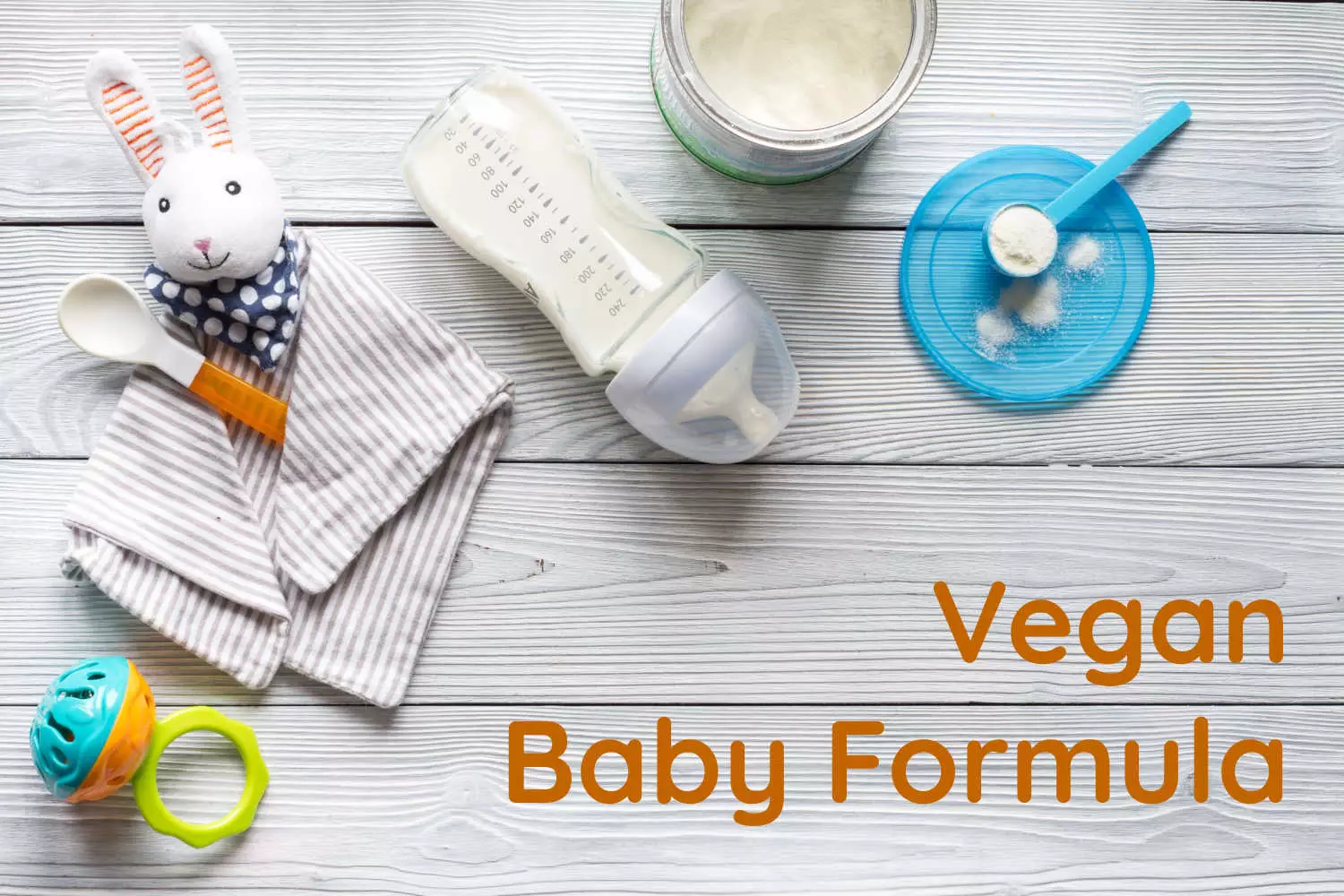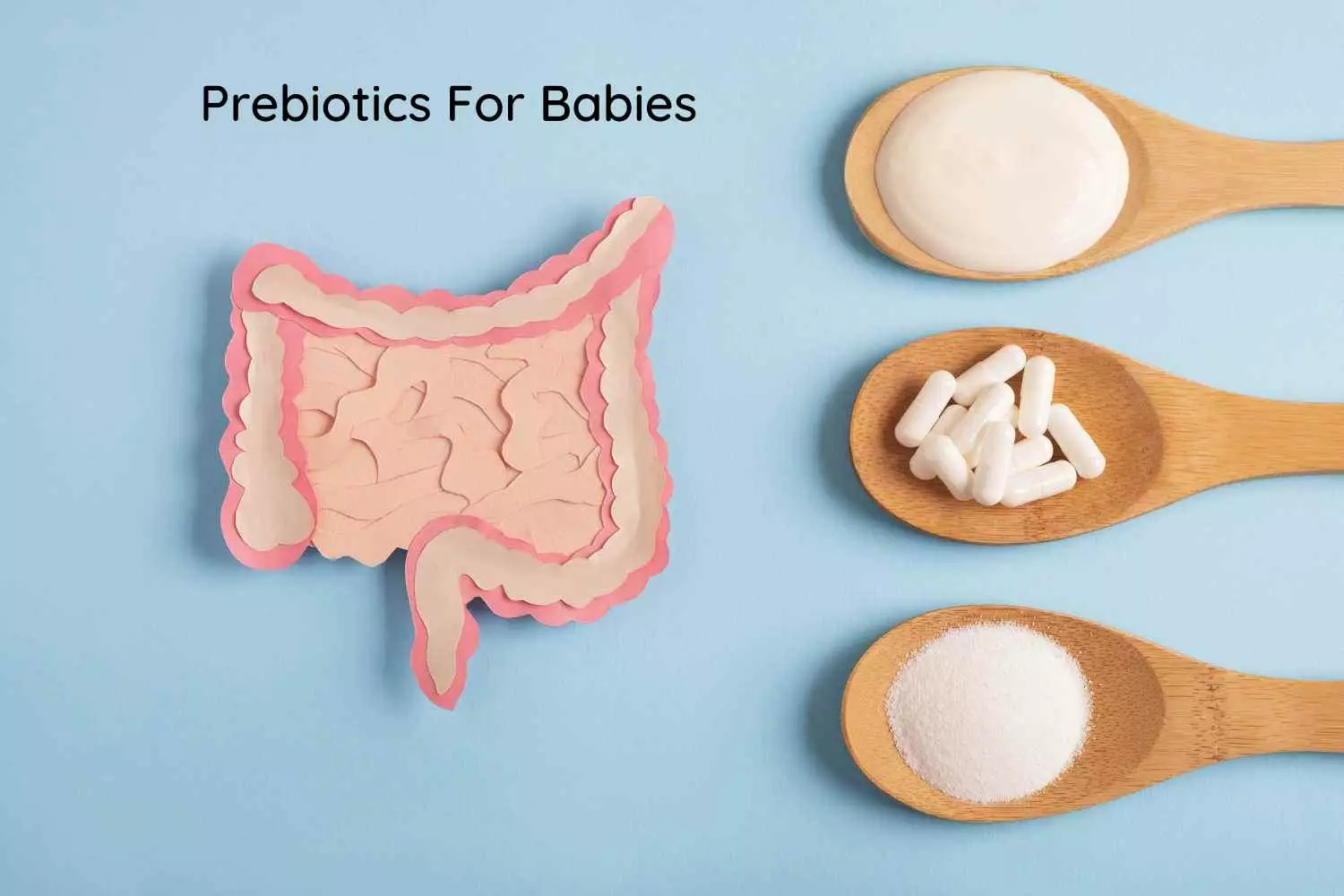
Baby And Solid Foods: When And How to Introduce
10 min readWritten by Editorial Team

 Breast milk and formula satisfy a baby’s initial requirement for essential nutrients. However, after some time, as the baby’s tummy grows, they need actual, solid foods to meet their growing needs. Every kid is unique and has different growth patterns and food needs. When your baby gives indications of being quickly hungry between full milk feeds, shows interest in food, and swallows it when placed on the tongue, the time is right for your baby to progress to solids.
Breast milk and formula satisfy a baby’s initial requirement for essential nutrients. However, after some time, as the baby’s tummy grows, they need actual, solid foods to meet their growing needs. Every kid is unique and has different growth patterns and food needs. When your baby gives indications of being quickly hungry between full milk feeds, shows interest in food, and swallows it when placed on the tongue, the time is right for your baby to progress to solids.
Exclusive breastfeeding is recommended till your baby is about 6 months old. Solid foods can be introduced to a baby after six months while continuing breastmilk. Feeding babies and toddlers solid food is not difficult but requires creativity and patience. You must keep trying every day. Your baby may not accept solids on their very first day.
In This Article
- Why do Babies Need Solids?
- When to Introduce Solids to Babies?
- How to Know if The Baby is Ready for Solids?
- How to Introduce Solid Foods to Babies?
- Tips to Remember When Introducing Solid Foods To Babies
- What Should be Baby’s First Foods?
- Some Preferred Solid Foods
- What is Baby Solid Food Schedule?
- Should I Make Any Preparation to Introduce Solids to My Baby?
- Can My Baby Have Solid Food Allergy?
- Will My Baby Still Need Breast and Formula Milk?
- FAQ’s
Why do Babies Need Solids?
During the first six months of their life, babies must be exclusively given breastmilk as much as possible (1). Breastmilk is an excellent source of nutrition for babies and has everything a growing baby needs. Once babies are six months old, they can gradually be introduced to solids (2).
But as babies grow, their nutritional needs increase, their digestive system improves, and there is a need for something more than breastmilk and formula milk to meet their growing needs.
In addition, babies get their iron from the stored iron in their bodies for the first six months of their life. After six months, they need iron from food sources (3). Hence introducing solid food to meet these requirements becomes vital.
Eating food is a skill babies slowly need to start getting used to from now. In fact, introducing solids is considered an important milestone for babies and babies will get all the nutrients they need from solids as they cross the all-important six-month mark in their lives (4).
Babies’ gums get strong and they sprout a teeth or two and have the necessary skills to chew and eat.
When to Introduce Solids to Babies?

Most experts and pediatricians recommend introducing solids to babies in their sixth month. Babies experience their first major growth spurt between the 4th and 6th months and need increased feeds to help them meet their nutritional needs. However, the sixth month is an ideal period to introduce solids.
By this point, babies lose the extrusion reflex (4A) that helps them when they suck on a breast or a bottle nipple. They will also be able to push the food back with the tongue. Most babies become ready to take up solid foods by this time.
Breast milk does not contain as much iron as a formula. However, the baby absorbs iron in breast milk more readily than iron in the formula. Hence, it becomes essential to substantiate your baby’s diet with other foods that can help her develop properly.
How to Know if The Baby is Ready for Solids?
Ideally, you must introduce solid foods to your baby when the baby’s digestive system has developed. This way, the baby will not be as prone to allergies as the immune system also develops gradually. Every baby displays certain signs indicating that they are ready for solid foods (4B). Recognizing these signals in time and encouraging your little one to have solids will help ease their journey towards eating solid foods and getting used to them.
The below signs will signal that your little one is ready to take on solids:
- They start staring at the spoons or hands going into your mouth and press you on for sharing, being confident that they are ready for other foods other than milk.
- They do not display the tongue thrust reflex anymore
- The baby is able to chew and has good head control
- The baby can sit up straight and their birth weight has doubled or increased considerably.
- They volunteer and keep food in their mouth and without dribbling.
- Your baby feels hungry more often, wants to nurse again and again, and is not satiated despite finishing the bottle.
- The baby can chew and swallow food, which essentially means they should be able to push the food back into their mouth.
How to Introduce Solid Foods to Babies?

The day your baby tastes something other than breast or formula milk is a big day. To make your baby accept solids as their food now, feed them with a little bottle or nurse them. After that offer a taste of the new food, starting with a teaspoon or two.
If it is bedtime or the baby is about to nap, many parents offer milk to provide the comfort factor. As with anything new, never introduce solids if your baby is cranky, tired, sick, or throwing tantrums. If the baby rejects the new food, do not worry, try again after a few days.
Here are a few basic guidelines to bear in mind to introducing solid foods to your baby.
- Ensure that they are displaying all or most signs of readiness for solids.
- Start with small amounts and you can slowly increase the quantity once they are comfortable.
- Encourage your baby to eat slowly and chew well. Show them how it is done.
- A good tip is to start with some breastmilk or formula, let them drink a little, offer a couple of spoons of solid food, and then end with some breastmilk or formula.
- Introduce one food at a time, use the three-day rule, and wait for three days before introducing another new food. This will give you enough time to check if your baby is displaying any allergic reactions.
- Be patient, babies take time to get used to new foods and sometimes may show dislike towards eating. Keep trying after some time or during their next meal time if they refuse to eat once.
Tips to Remember When Introducing Solid Foods To Babies
The following tips will help mothers, especially new mothers while introducing solids to their babies.
- Never try to feed a lying-down baby as they may not be able to make the connection of eating while sitting straight up. Also, this might cause problems with swallowing and cause choking.
- Always offer the baby food when the baby is not full but has had some milk. In essence, your baby must not be completely hungry or completely full.
- Your baby may or may not like the new food – if they reject it, offer her some the next day, or wait for a few days and then try again.
- The food you introduce must be easily digestible.
- Try to feed a single food item at a time.
- The foods should not upset the tummy of your baby, so always avoid stale foods and avoid foods that can cause allergies.
- It is good to prefer homemade cereal/food.
- Let your baby try different varieties gradually. Allow them to taste more foods so that they can develop tastes and preferences.
When your baby shifts their head or starts to play with the spoon, and lets out a wail or two when offered food, that means that they are full and do not want to eat anymore. This is when you should stop feeding your little one.
What Should be Baby’s First Foods?

In the context of Indian foods, you have a lot of first foods that you can introduce to your baby. Look out for any signs of allergies to be on the safe side.
Homemade Cerelac is a popular and healthy option. Apart from this, porridge made from sprouted ragi is also excellent for babies. It is extremely easy to digest and provides multiple health benefits.
Stewed and mashed fruit also can be introduced as the first solid food for babies. Always start with a single fruit and slowly introduce fruits one after the other.
You can also slowly introduce your little one to well-cooked grains such as cooked and mashed rice and wheat depending on how quickly your child is accepting and digesting these foods.
Next in line are cooked lentils. You can start with easily digestible dals such as red lentils or masoor dal and slowly progress to the other types. You can supplement solids with liquids such as rice water, dal water, clear broths from boiled vegetables, etc.
Pureed form of solid foods, fed with soft spoons is a general preference. To avoid causing discomfort to the baby’s soft gums, use a very soft spoon or use your finger. Always feed your baby the bottle or nurse them first, and then make them taste a pureed banana, peach, or potato. See that they are able to take the food from the tongue to the back of the mouth.
Your little one is now ready for solids and finger foods. At this point, you can introduce water to your baby. Drinking water helps with digestion and keeps constipation in check. Refrain from adding cereal to your baby’s bottle, as they may not relate to sitting and eating later and this can cause problems.
[Read: What Are The Best First Foods For My Baby?]
Some Preferred Solid Foods

Once the baby gets used to the solids’ routine, they will move on to more exciting options – mashed, chopped, cut etc., exposing them to various textures of food. Until then, you can try the following:
- Pureed fruits like avocados, sweet potatoes, carrots, prunes, bananas, peaches, and pears
- Yellow and orange veggies which will be nutritious for the baby
- Iron-fortified baby cereals
What is Baby Solid Food Schedule?
Start by giving solids to your baby just once a day. You can slowly increase solid feeds to twice a day. By the time your baby is one year old, they must have solids at least three times a day.
A healthy combination of breast or formula milk, iron-fortified baby cereal, pureed fruits and vegetables, and some proteins like lentils, and cottage cheese would be good for the baby. Do not feed your baby honey until he is a year old.
[Read: Steps to follow for first baby foods]
Should I Make Any Preparation to Introduce Solids to My Baby?

Here are a few things to bear in mind when preparing to introduce solid foods to your baby.
The first thing is that your baby should be able to sit upright before being introduced to solids. The baby should be seated in a comfortable place, preferably in a high chair. The baby can also sit in a bouncy seat if he cannot sit by himself as yet.
- Ensure the baby is able to swallow easily and is uprightly seated.
- Invest in soft spoons baby cups and bowls. Tying a bib is a good idea as well.
- If you are making your own baby food, buy a good tool like a hand blender, food processor, or baby food grinder.
- Also, invest in some baby food storage containers.
- The baby starts picking up on your eating habits, so make sure that you stick to a schedule and have many varieties of meals!
There will be cute moments of your baby’s face smeared in food, more on the face than he would have eaten, make sure you capture these loving moments.
Can My Baby Have Solid Food Allergy?
Some babies can be allergic to certain foods. Such food allergies may run in families or the baby might have developed it individually. Either way, identifying the foods that your baby is allergic to is an important aspect of introducing solid foods to babies.
Common food allergens for babies include
- Milk
- Eggs
- Peanuts
- Soy
- Wheat
- Tree nuts
- Fish
- Shellfish
Diarrhea, vomiting, wheezing, a swollen face, etc are some of the indicators of an allergic reaction. Always maintain a minimum of 3 days gap between introducing two new foods. Use the three days to check for any possible allergic reactions in your baby to the new food.
Older schools of thought believed in avoiding any foods that can be potential allergens to babies. However current research studies suggest and emphasize that the early introduction of allergic foods can help babies develop an immunity towards food allergies (5).
[Read: The 3-Day Wait Rule For Babies To Introduce Solids]
Will My Baby Still Need Breast and Formula Milk?

Absolutely. You must nurse or formula-feed your baby till she is a year old at least or till your baby turns two in the case of breastfeeding (6). The intake of milk might come down as your baby starts to taste different flavors and textures. Yet, your little one must continue with breast or formula milk since solid foods alone cannot provide all the nutrients that your baby needs in the first year.
When it comes to feeding solids to babies, patience is the key. The baby may not show a regular consumption pattern or interest. They may not want to eat one day and show interest after three or four days. It is also possible that anything that they ate with interest a few days back will not attract them on the next try.
In the beginning, the quantity of intake might be very low, but slowly it will increase. Once a baby completes the first year and moves towards the second year, their gut will have matured enough to handle solid foods safely.
FAQ’s
1. When Can I Introduce Solids to My Baby?
Solids can be introduced to babies who are six months old. Till babies turn six months old, they should be exclusively breastfed unless advised otherwise by the doctor. At the 6 month mark, your baby’s digestive system is mature enough to start accepting small amounts of solids. Your baby needs nourishment from sources other than breastmilk and/or formula and is capable of chewing basic solids.
2. What Solids Should Babies Eat First?
You babies can start with homemade cerelac, sprouted ragi porridge, stewed and mashed fruit, cooked and mashed rice and wheat, and cooked lentils. You can also supplement these solids with rice water, dal water, and clear vegetable broths. Avoid feeding honey (5) and animal milk in your baby’s first year.
3. How do I Know if My Baby is Ready For Solids?
You will know that your baby is ready for solids once they are able to sit up on their own and show interest in what you or others are eating. They will have gotten rid of their tongue thrust reflex by now and have good head control.
Read Also:
Baby’s First Food Apple Puree
Five Super food You Should Consider For Your Baby
References
- Exclusive breastfeeding practice during first six months of an infant’s life in Bangladesh: a country based cross-sectional study | BMC Pediatrics | Full Text – [https://bmcpediatr.biomedcentral.com/articles/10.1186/s12887-018-1076-0]
- Breastfeeding and Health Outcomes for the Mother-Infant Dyad – PMC – [https://www.ncbi.nlm.nih.gov/pmc/articles/PMC3508512/]
- Iron | Breastfeeding | CDC – [https://www.cdc.gov/breastfeeding/breastfeeding-special-circumstances/diet-and-micronutrients/iron.html]
- Becoming an independent feeder”: infant’s transition in solid food introduction through baby-led weaning – PMC – [https://www.ncbi.nlm.nih.gov/pmc/articles/PMC7722414/]
- Early introduction of food allergens – BSACI – [https://www.bsaci.org/professional-resources/allergy-management/food-allergy/allergy-prevention/early-introduction-of-food-allergens]
- Breastfeeding and Health Outcomes for the Mother-Infant Dyad – PMC – [https://www.ncbi.nlm.nih.gov/pmc/articles/PMC3508512/]

Editorial Team,
With a rich experience in pregnancy and parenting, our team of experts create insightful, well-curated, and easy-to-read content for our to-be-parents and parents at all stages of parenting.Read more.
Responses (0)
Want curated content sharply tailored for your exact stage of parenting?
Related articles

Dry Fruit Powder For Babies – When to Introduce, Benefits & Side Effects

Vegan Baby Formula – When to Introduce, Benefits and How to Choose

Prebiotics For Babies – Types, Benefits and Food Sources

Symmetric Tonic Neck Reflex in Babies – What is it and Steps to Test it

Stacking Toys For Babies – How it Helps in Baby’s Development

Breastfeeding After IVF – Tips to Cope
Sponsored content
Discover great local businesses around you for your kids.
Get regular updates, great recommendations and other right stuff at the right time.





